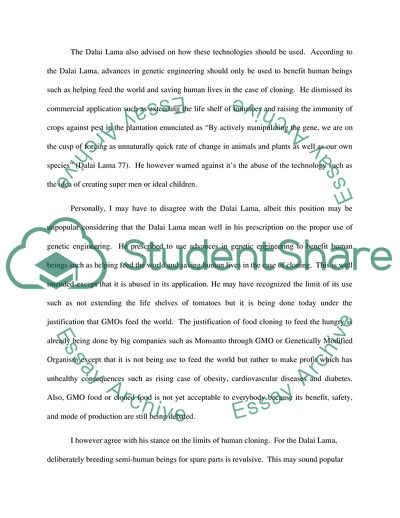Cite this document
(Ethics and New Genetics Book Report/Review Example | Topics and Well Written Essays - 1750 words, n.d.)
Ethics and New Genetics Book Report/Review Example | Topics and Well Written Essays - 1750 words. https://studentshare.org/science/1833866-dalai-lamas-ethics-and-the-new-genetics
Ethics and New Genetics Book Report/Review Example | Topics and Well Written Essays - 1750 words. https://studentshare.org/science/1833866-dalai-lamas-ethics-and-the-new-genetics
(Ethics and New Genetics Book Report/Review Example | Topics and Well Written Essays - 1750 Words)
Ethics and New Genetics Book Report/Review Example | Topics and Well Written Essays - 1750 Words. https://studentshare.org/science/1833866-dalai-lamas-ethics-and-the-new-genetics.
Ethics and New Genetics Book Report/Review Example | Topics and Well Written Essays - 1750 Words. https://studentshare.org/science/1833866-dalai-lamas-ethics-and-the-new-genetics.
“Ethics and New Genetics Book Report/Review Example | Topics and Well Written Essays - 1750 Words”. https://studentshare.org/science/1833866-dalai-lamas-ethics-and-the-new-genetics.


